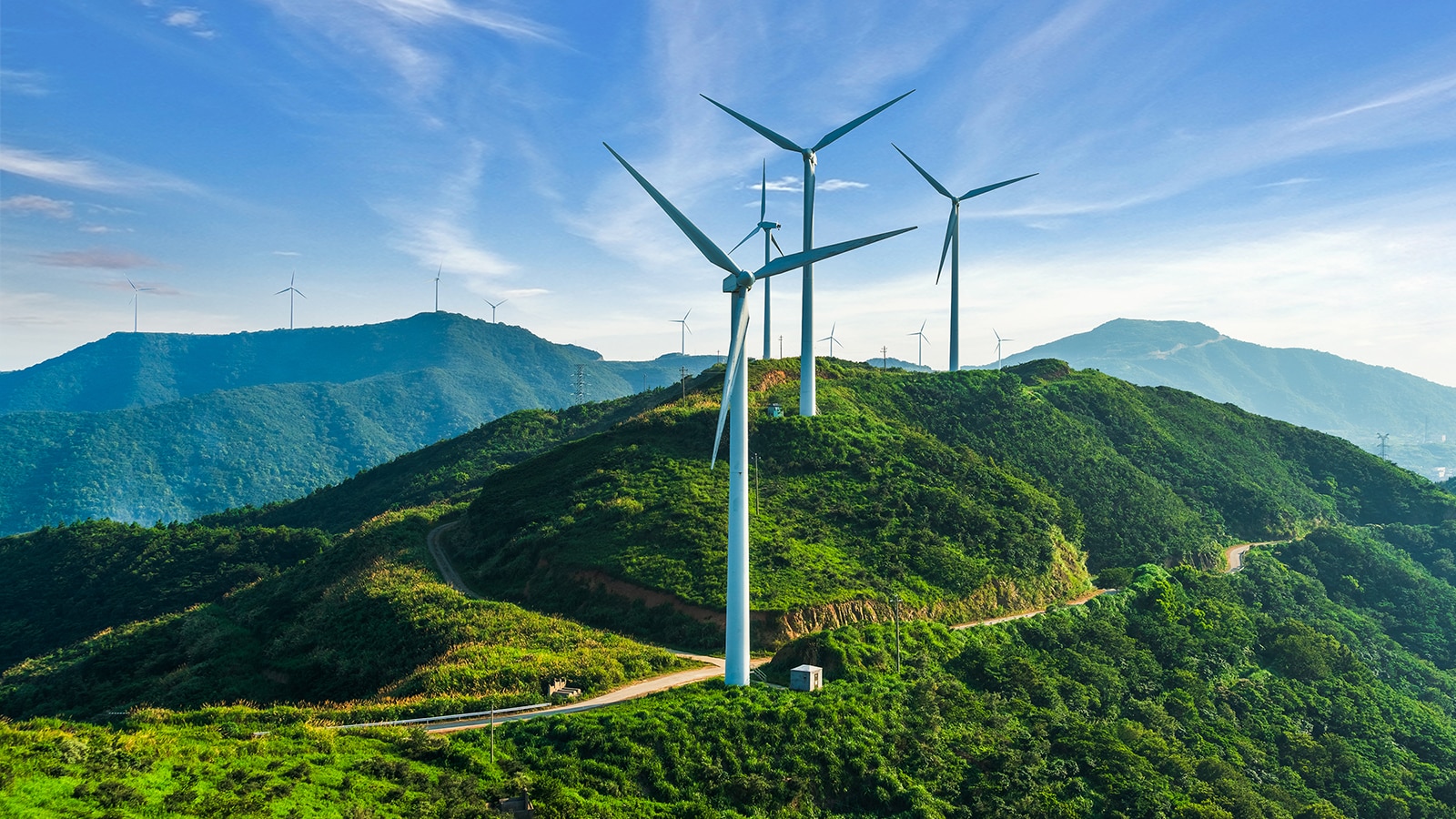Motivation emerged from policy
Aiming to improve the legal framework on reducing greenhouse gas emissions, protecting the environment, and responding to climate change, Vietnam has issued many decrees and decisions related to this issue, notably Decree No. 06/2022/ND-CP. Accordingly, from now until 2027, the Government intends to complete regulations and policies so that by 2028, Vietnam can officially launch its first Carbon Trading platform.
According to the Environmental Protection Law 2020, a carbon market is a market formed from carbon credit exchange transactions. This is the mechanism to create resources to promote the reduction of greenhouse gas emissions and the transition to a carbon-neutral economy.
Carbon market at a glance
- Carbon market classification
- Forms of carbon markets
- Pricing carbon credits
- Prominent carbon markets around the world
Carbon market classification
In the carbon market, there are two main types of goods: greenhouse gas emission quotas and carbon credits. The United Nations Environment Programme points out that markets can be classified into two types: mandatory markets and voluntary markets. For mandatory markets, there is an annual compliance obligation to monitor carbon emissions and provide the exact amount of carbon credits relative to actual emissions, and there are penalties for non-compliance. In contrast, the voluntary market is for companies that aim to offset their carbon emissions without a compliance or punishment mechanism.
Carbon markets’ subgroups can also be divided into closed markets and open markets. The closed market only allows carbon credits to be created specifically to meet the requirements of those markets, while the open market allows carbon credits to be created from projects that offset or reduce carbon emissions. Carbon credit trading can take place bilaterally or on an online trading platform, such as Carbon Trade Exchange (CTX) or CORSIA. For some trading platforms like CORSIA, carbon credits must meet certain conditions.
Forms of carbon markets
One of the most popular forms of carbon market is ETS - an Emissions Trading System based on the cap-and-trade principle (emissions ceiling and trading). The remaining form is carbon tax collection. With the ETS model, within a country, businesses (usually companies operating in high-emission industries) will be assigned certain emission limits. Any business that exceeds the quota must buy the quota from other units to make up for it, and the seller is the enterprise that does not fully use the allocated quota. This model is also built for larger markets within a country, such as the European Union's (EU) ETS, applicable to companies in the power generation industry in member states, European Free Trade Association countries (Iceland, Liechtenstein and Norway) and Northern Ireland.
Pricing carbon credits
The World Bank has been tracking carbon markets for around two decades and this is its 11th annual report on carbon pricing. When the first report was released, carbon taxes and Emission Trading Systems (ETS) covered only 7% of the world’s emissions. According to the 2024 report, 24% of global emissions are now covered. There are now 75 carbon pricing instruments in operation worldwide. Over half of the collected revenue was used to fund climate and nature-related programs. The ETS sets limits on greenhouse gas emissions. It allows lower emitters to sell their additional emissions units (or “allowances”) to higher emitters, thereby establishing a market price for emissions waste. Meanwhile, a carbon tax directly puts a price on carbon by determining the tax rate on emissions.
When examining the overview map of carbon price ranges in ETS markets and carbon tax levels worldwide, it's evident that some countries, such as Uruguay, Switzerland, Sweden, Norway, Finland, and the Netherlands, have implemented significantly high prices. This is due to their governments' strong commitment to decarbonisation, which is reflected in the imposition of very high carbon taxes. In contrast, the price of carbon credits in ETS markets like the EU, US, and Mexico is at a moderate level, heavily influenced by market demand. Furthermore, carbon prices in newly developed countries' ETS and carbon tax markets, including China, Argentina, and Kazakhstan, remain relatively low.
Carbon pricing, which assigns costs to CO2 emissions, is considered one tool among many to help governments and businesses transition to a net-zero future. By the end of 2021, more than 21% of global emissions (compared to 15% in 2020) were covered by some form of carbon pricing. Recent reports from PwC and the World Economic Forum explored various carbon pricing scenarios. Under the primary scenario, where an International Carbon Price Floor (ICPF) similar to the IMF's 2021 proposal is implemented globally, emissions could decline by 12% by 2030. The reports also examined the potential revenue generated through carbon pricing and how it could be invested in efforts to manage the transition to a low-emissions economy. The IMF suggests using a portion of ICPF revenues from high-income countries to mitigate adverse impacts on other economies.
Such transfers could encourage broader participation and ensure a more equitable transition. Indicative analysis indicates that some of the additional carbon revenue from ICPF implementation in high-income countries like the US could fully offset the negative impact on gross domestic product (GDP) in low-income regions like sub-Saharan Africa. The reduction in GDP from carbon pricing is estimated to be largely counterbalanced by avoiding the costs associated with rising temperatures. Achieving this carbon pricing target will require significant global collaboration across regions and economic levels. The support and advocacy of CEOs and world leaders will be crucial in driving this transition.
Prominent carbon markets around the world
Trading turnover in the world carbon market has reached 760 billion EUR (897 billion USD), a 164% increase from 2021. According to the London Stock Exchange Group, the global carbon market's value reached a record of 949 billion USD by 2023. The EU, UK, US and China employ the ETS mechanism. In principle, domestic carbon markets allow companies to monetise their emission reduction efforts by selling surplus carbon credits generated through production optimization measures. The EU ETS, the world's first international ETS, has been operational since 2005. In 2023, the European ETS market facilitated 1.123 billion tons of carbon transactions, a 11% decrease from 2022, and reaching revenue of 770 billion EUR, according to S&P Global. Carbon markets, once plagued by scarcity, have finally become one of the most popular tools in the fight against climate change.
Conditions for unlocking the Carbon market in Vietnam
According to estimates, Vietnam requires up to 473 billion USD to address climate change and achieve the committed Net Zero goal. Therefore, revenue from carbon credits will be crucial for sustainable development and the objectives of green finance projects. Participating in the carbon market increases compatibility with regional and world markets, creating competitive advantages for Vietnamese products, while fostering the exchange of experience, knowledge and expertise between Vietnam and the world.
At the meeting "Project on establishing a carbon credit market in Vietnam" on 8 January, 2024, Deputy Minister of Finance Le Tan Can stated that the carbon credit market in Vietnam needs to be developed in accordance with practical realities. He emphasised that this aligns with the country's development direction, international commitment to reducing greenhouse gas emissions and the global trend of developing the global carbon credit market, while also leverage the natural resources. the power of domestic economic sectors in greenhouse gas reduction activities.
Moreover, Vietnam became the first country in the East Asia-Pacific region to receive a payment of 51.5 million USD from the World Bank based on its emissions reduction achievements. This success brings Vietnam closer to the carbon credit market, facilitating the implementation of its climate commitments, including the Net Zero target by 2050. This marks the beginning of the potential forest carbon credits sales.
Joining the carbon market increases compatibility with regional and world markets, creating competitive advantages for Vietnamese products, while sharing experience, knowledge and expertise between Vietnam and the world.
Price and currency differences between different markets are challenges that should be addressed by introducing an internal carbon market. The price of carbon credits is set by the economic and regulatory environment surrounding them, so carbon credit prices cannot be compared across different jurisdictions. In terms of international cooperation, the EU launched the Carbon Border Adjustment Mechanism (CBAM), imposing carbon taxes on some imported products outside the bloc. This has raised concerns about the disparity in credit prices. The carbon price of the Chinese ETS market currently fluctuates at 8 USD/ton, while the price in the EU is 10 times higher at about 110 USD/ton. In a domestic carbon market, the selling price will depend on the country's specific policy regulations.
For the Vietnamese market, creating a domestic market would provide businesses with easier access to the same unit of money at a lower cost. Movement around the carbon market would enable businesses to trade and increase revenue to reinvest in green technology.
However, the establishment of a domestic carbon market also requires attention to several challenges. In particular, the lack of uniform and widely accepted principles for calculating carbon allowances mean that companies must choose from a wide variety of possibilities without clear guidance. Investment, transaction, and operational decisions can be delayed or hindered due to a lack of clear accounting treatment. Notably, without careful consideration, the introduction of new reporting requirements to facilitate border carbon adjustments (or other mandatory reporting or certification measures) could increases administrative and transaction costs. This can unintentionally limit participation in global markets, especially for smaller or less sophisticated businesses. This risk can be mitigated by streamlining and harmonising reporting requirements, helping to reduce costs and avoid imposing unintended trade barriers.
Additionally, national carbon markets may face significant challenges in data reliability. In the Chinese market, data management issues have hindered the expansion of carbon market to other areas, according to Caijing, a financial magazine in China.
Vietnamese businesses still face significant obstacles in forming and trading carbon credits. The biggest challenge is verifying carbon credit formation. After submitting an application to register under the carbon credit trading mechanism, businesses will need third-party verification. However, verifying these carbon credits is expensive and methodologically complex. Technical limitations lead to a very low number of carbon credits formed in Vietnam, especially for projects related to forest carbon credits. Accepting investment and spending a large amount of capital has also made many businesses hesitant.
Unlock the Carbon trading platform: Recommended Practices
Overall, any change in carbon prices could significantly affect a manufacturer's cost profile and its competitive position. Indeed, a PwC model estimates that full implementation of CBAM alone would increase the carbon cost for many goods by a factor of five or more.
Accordingly, PwC has identified four practices that can help business leaders prepare for the anticipated movement in carbon costs to unlock the potential of the carbon trading platform.
* Note: All data in the article are based on secondary research results from the PwC’s team and PwC's published analysis.













